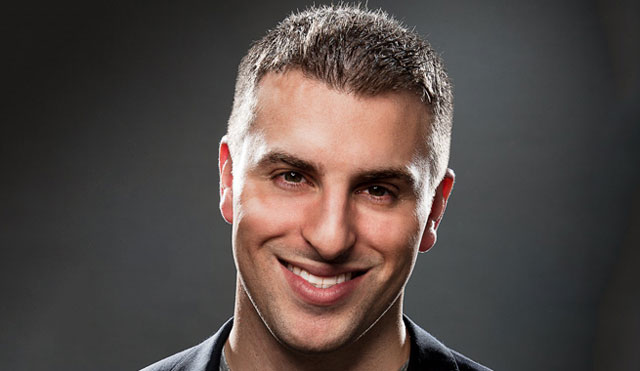
Brian Chesky doesn’t have a home. He has spent the last three years sleeping on strangers’ couches, in spare rooms and in vacant holiday homes.
In 2010, he decided that the best way to improve Airbnb’s service was a tried and trusted method called “eating your own dogfood” — in other words, using your own product as often as possible. And so, since then, he has been relying on Airbnb to find places in which to sleep.
Airbnb sounds like a crazy idea when you first hear about it: a service that lets you rent out spare beds or spare rooms in your own home to complete strangers who find you on the Internet. And indeed it was a very hard sell. Speaking at this year’s South by South West Interactive (SxSWi) conference, Chesky described Airbnb’s slow and often bumpy genesis.
“We actually launched three times,” he said. “No one noticed the first two times, so we launched again.” At the first launch, at SxSWi in 2008, the company got two customers in total — one was Chesky himself.
Things have clearly changed for the company since then. More than half of the hundreds of audience members put up their hands to indicate they’re using the service for their current visit to Austin, Texas, where SxSWi takes place.
For Chesky, this success is about more than just a good business model — it’s about a fundamental change in the nature of the underlying economy. “We’re part of the era of the sharing economy — which is what comes after the era of mass production,” he explains.
This idea crystallised for Chesky when he described Airbnb to his grandfather, who replied “Of course!” Chesky suddenly realised that his business model was actually a very old one, that predated the era of the mass travel industry and hotel chains. If you wanted to travel to another city 70 years ago, it was perfectly natural to arrange to stay with a local family or in a boarding house.
Today, Airbnb has hundreds of thousands of customers in 33 000 cities across the globe, but for several years Chesky and his partners struggled to feed themselves. He recalls how, during the 2008 Democratic National Convention in Denver, Colorado, the team made up novelty cereal boxes called “Obama Os” and sold them for US$40 each as mementos, generating $30 000 in much needed funding for the company.
Chesky calls this his “low point” and jokes that “at no point in the Facebook story was Mark Zuckerberg hot gluing hundreds of cereal boxes in his apartment”. But the stunt is also what won them funding from Paul Graham, a respected venture capitalist. Graham wasn’t buying their pitch until Chesky’s co-founder showed him the Obama O’s box.
When he saw the box and heard the story, he was impressed. “You guys won’t die, you’re like cockroaches.” And so Graham accepted Airbnb into his Y Combinator seed funding programme. But shortly after they joined the programme, Graham gave them some advice — leave California and go to New York, Airbnb’s biggest market with a princely 100 customers.
Graham told them: “It’s better to focus on the 100 people who love you, instead of one million who kind of like you.” And so the team moved to New York and went from door to door visiting each of their customers and taking photos of their apartments.
This process taught the founders a huge amount about how they needed to adapt their model, and how best to serve both hosts and renters. By 2010, Chesky took it a step further — he decided to live exclusively in spaces rented via Airbnb. And he has been doing so ever since. “Right now I am essentially homeless,” he says, grinning broadly.
As far as Chesky is concerned, Airbnb isn’t selling places to sleep so much as memories. “We are in the business of meaningful experiences. I remember every family holiday I had as a child.” This was confirmed when a customer told him, “Brian, AirBnB makes my life seem longer because I have all these great memories.”
He had the same experience himself when he visited Paris in 2010. The experience of staying in a real person’s home was so memorable compared to a bland, anonymous hotel room. This ethos of shared resource use is driving what Chesky calls the sharing economy or the “physical manifestation of the Internet”.
He elaborates: “If you think that mass production is going to change, then you realise the sharing economy can replace it.” And indeed the idea of shared use of everything from cars (ZipCar) to private jets (NetJets) is creating new businesses around the world.
Whether or not you believe that Chesky’s vision of the future of the economy or not, it’s impossible not to get caught up in his idealism and enthusiasm. “If you build a company that employs love, then the customers will feel that love, and so will the investors.” — (c) 2013 Mail & Guardian
- Visit the Mail & Guardian Online, the smart news source

